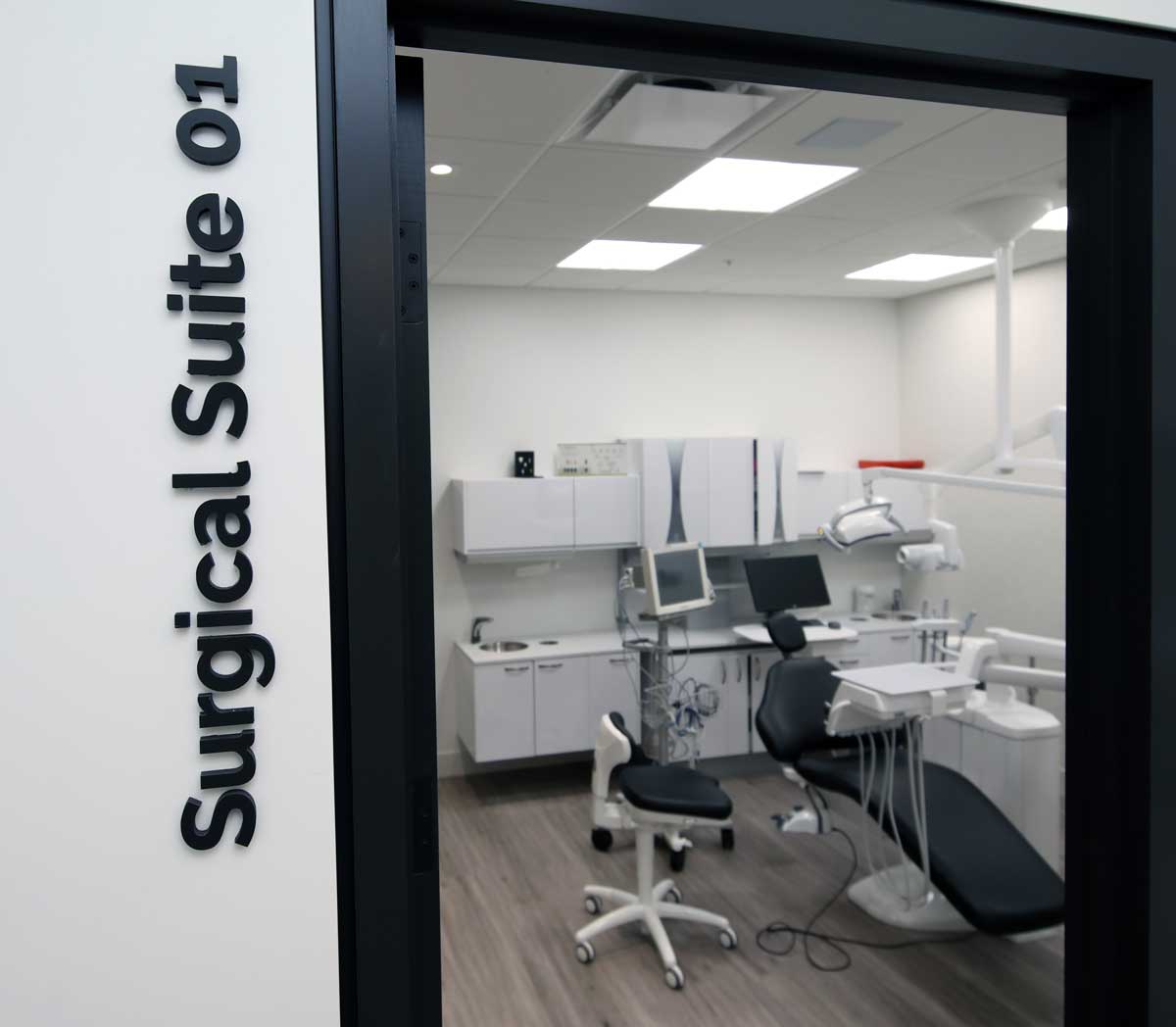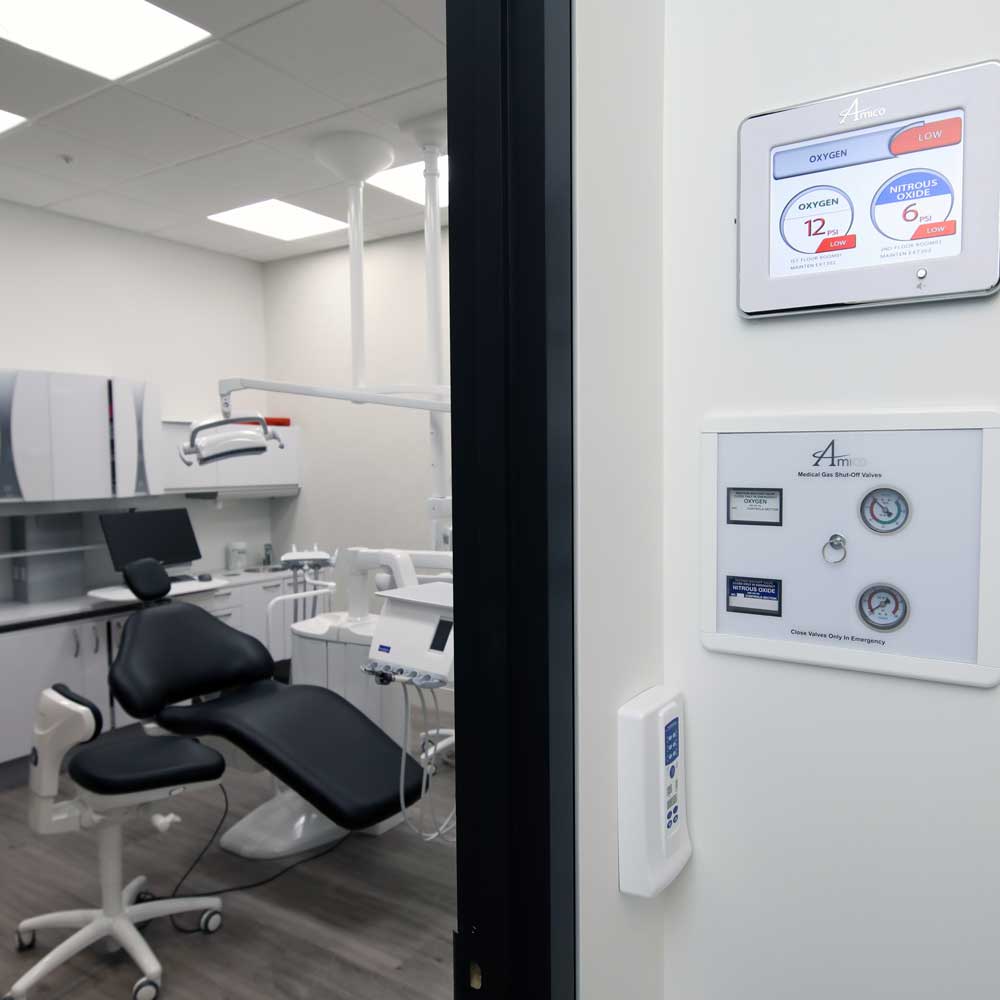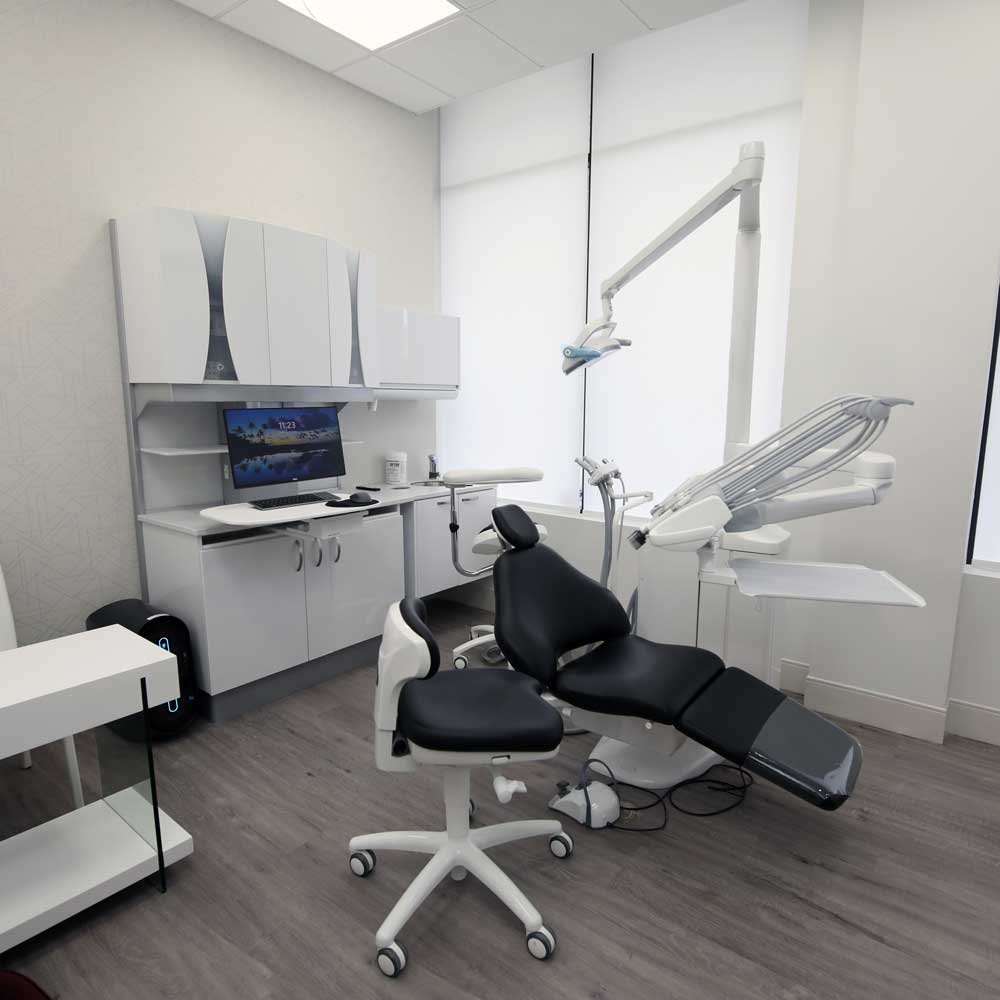
Oral and Maxillofacial Surgery encompasses the entire diagnostic and surgical treatment of the head, neck, face, jaws, and cranium. It will also concentrate on the building of structures. In this speciality, we take great pride in offering our dental clients multidisciplinary, all-inclusive surgical and diagnostic services for specific locations, such as the head and neck.
OMF is a surgical specialty demanding both medical and dental degrees. Also, all Oral & Maxillofacial Surgeons must have a registrable dental qualification. Furthermore, some even see it as the bridge between medicine and dentistry. Also, it treats conditions that need expertise from both medical and dentistry backgrounds, such as head and neck cancers, facial disproportion and pain, salivary gland diseases, temporomandibular joint disorders, cysts and tumours of the jaws, impacted teeth, as well as numerous problems that affect the oral mucosa including mouth ulcers and infections.
Different surgeons may choose different training for specializing in one or more of these specialized fields of Oral and Maxillofacial:

What’s the Difference between Oral Surgery and Maxillofacial Surgery?
Oral and maxillofacial dentists do essentially the same tasks. Surgery on the face and mouth is a part of the training. But not all dentists provide oral surgery in addition to office-based procedures. On the other hand, some medical experts prefer to operate in hospitals.
Oral and Maxillofacial Surgery improves your jaw function and relieves your pain. Additionally, maxillofacial surgery can detect a wide range of dental problems and conditions, including:
Also, some procedures can treat jaw problems:
Further reasons for Oral and Maxillofacial Surgery:


Generally, your healthcare provider will refer you to a specialist if maxillofacial is right for you. Our oral surgeon will consult you to discuss your problems. First, we will ask about your symptoms, medical history, current medications and more. Secondly, our surgeons examine your oral cavity for surrounding areas. Additionally, order tests (including dental X-Rays or 3D scans) are essential to get detailed images of your structures. Lastly, we will diagnose the condition and recommend suitable surgery.
The kind and extent of the problem will determine the specifics of your procedure. Certain therapies need more than one procedure to provide the greatest outcomes. Additionally, our surgeons are skilled and will administer medication to prevent pain. You will have a discussion over the type of anaesthetic with your medical staff. Your surgeon may use stitches to seal any surgical incisions at the conclusion of the procedure. In certain cases, your surgeon may also use packing to shield your incision and teeth. It can also absorb substances like pus and blood.
After the procedure, you’ll be brought to a room so you can recover from the anesthesia and wake up. You may have some discomfort when the medication wears off. Furthermore, bleeding, swelling, and bruising are common. Your mouth and teeth are still functional. The surgeon and the team will explain the procedure and any aftercare instructions. Once you are under anesthesia, you should ask someone to drive you home.
Once you go under surgery, ask for help if you experience any signs of infection or other discomforts.
The ORIS Dental Clinics in Richmond Hill, Toronto, are ready to help with x-rays, cosmetic dentistry, dental implants, and much more. Our professional dentists are here to help you, and we will get the job done at an affordable price. Email us if you want to know more about our dentists and how they can help you. You can even call us right now to find out what you need to know. Your dentist can refer you to our clinic by filling out our secure online oral surgery referral form.
Why Choose ORIS Dental Clinics?